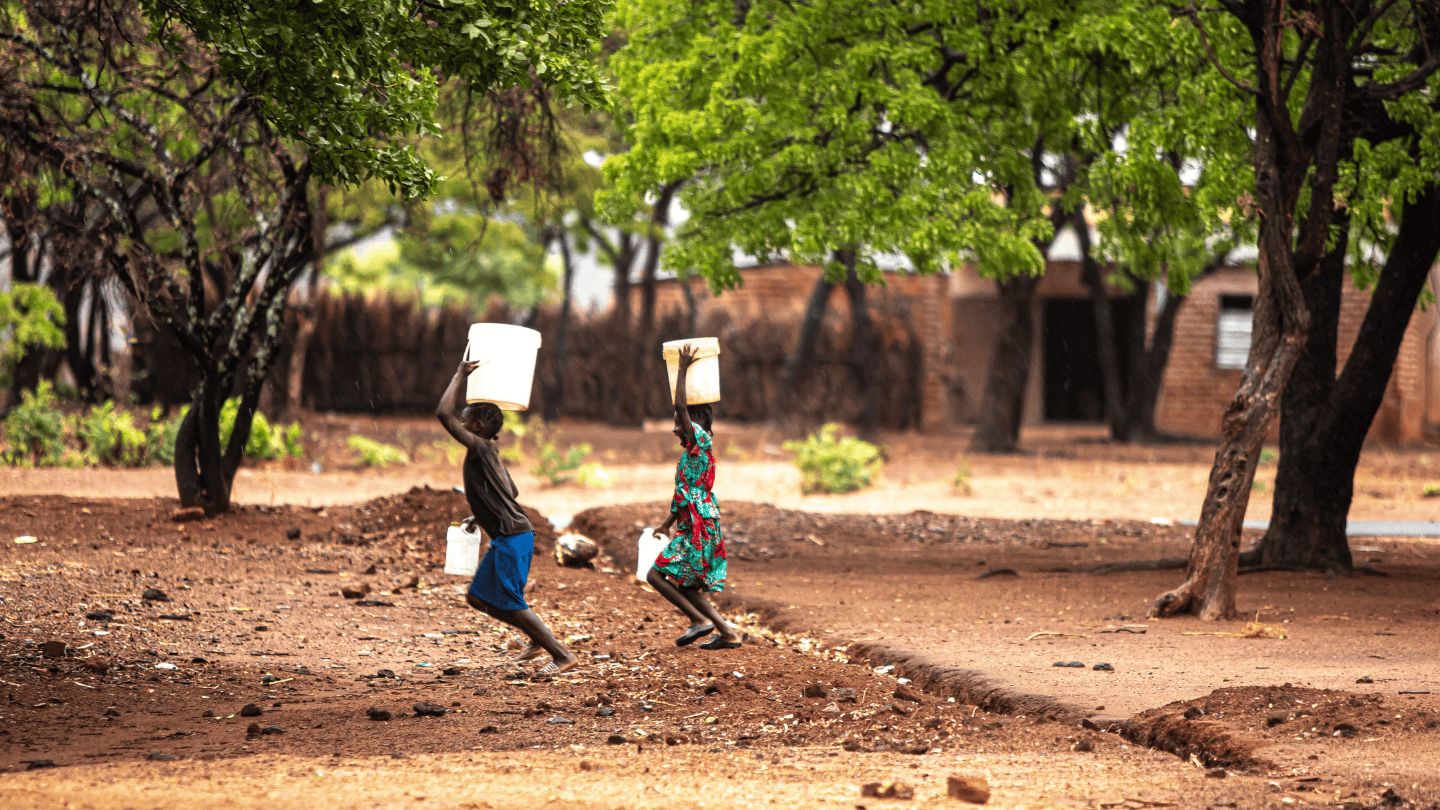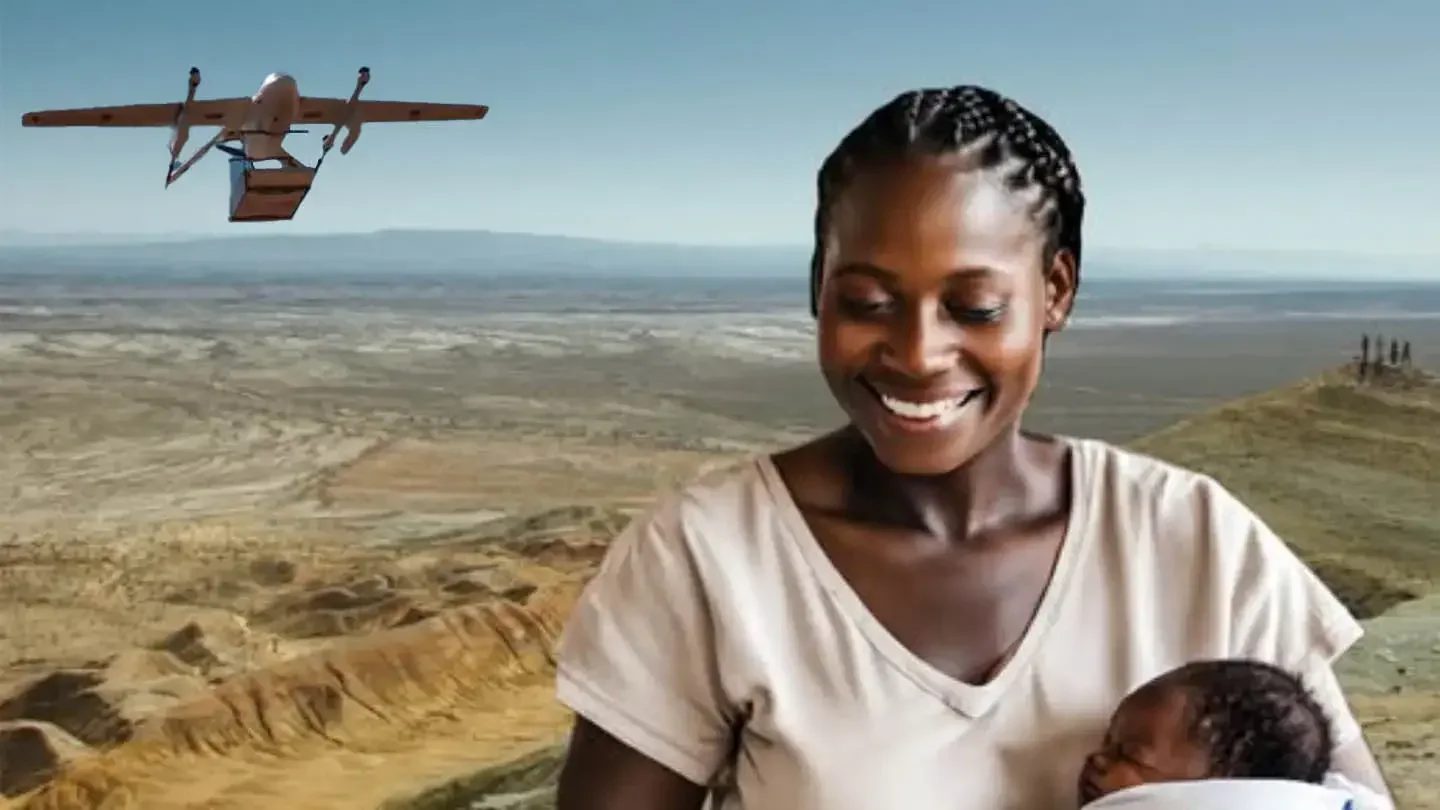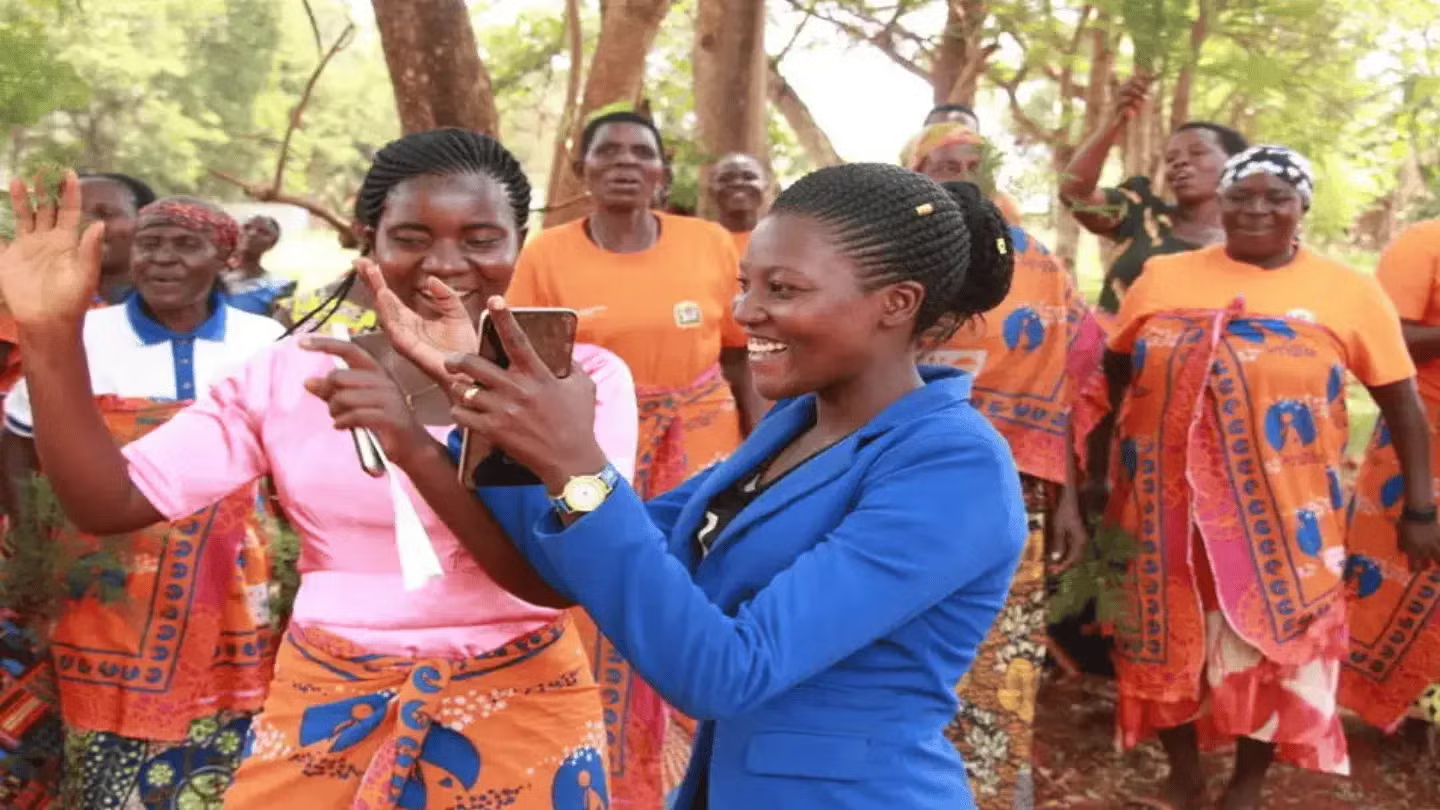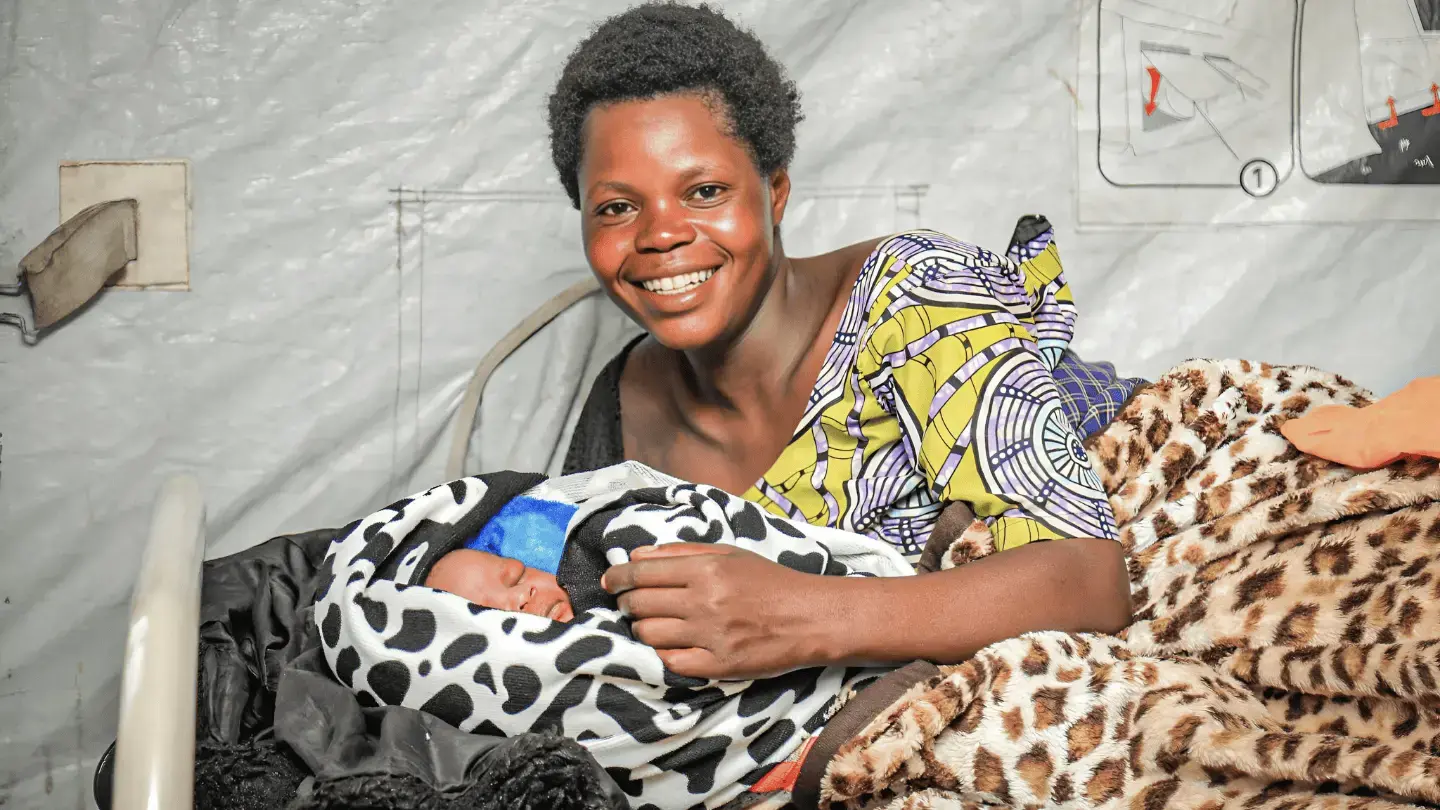Zambia - The road ahead is dry and cracked, stretching endlessly under a relentless sun. As Derek, UNFPA’s focal point in the Western Province, drives, the car’s tires crunch against the brittle earth, sending swirls of dust into the air. The landscape is transforming—fields that once lay barren are now tinged with green, and the Zambezi River, once shrinking, flows with renewed vigor. But beneath this resurgence, the scars of the 2024 drought remain. The rains have returned, but they cannot erase the deep wounds left behind—a crisis that tested Zambia’s strength and highlighted the urgent need for lasting solutions.
In February 2024, President Hakainde Hichilema declared a national disaster due to a severe drought in Zambia. The drought had devastating effects, severely reducing crop yields—especially maize, the country's staple—leading to food insecurity. Farmers faced significant losses, while prolonged dry spells caused water shortages, drying up rivers and reservoirs. Power cuts, lasting up to 20 hours a day in some areas, disrupted daily life and economic activities, as Zambia heavily relies on hydroelectric power. The crisis disproportionately affected women and girls, increasing their vulnerability to gender-based violence and limiting their access to essential health services. Now, as Derek observes communities in Western Province recovering, he reflects on the work that lies ahead.
Healthcare on the frontlines
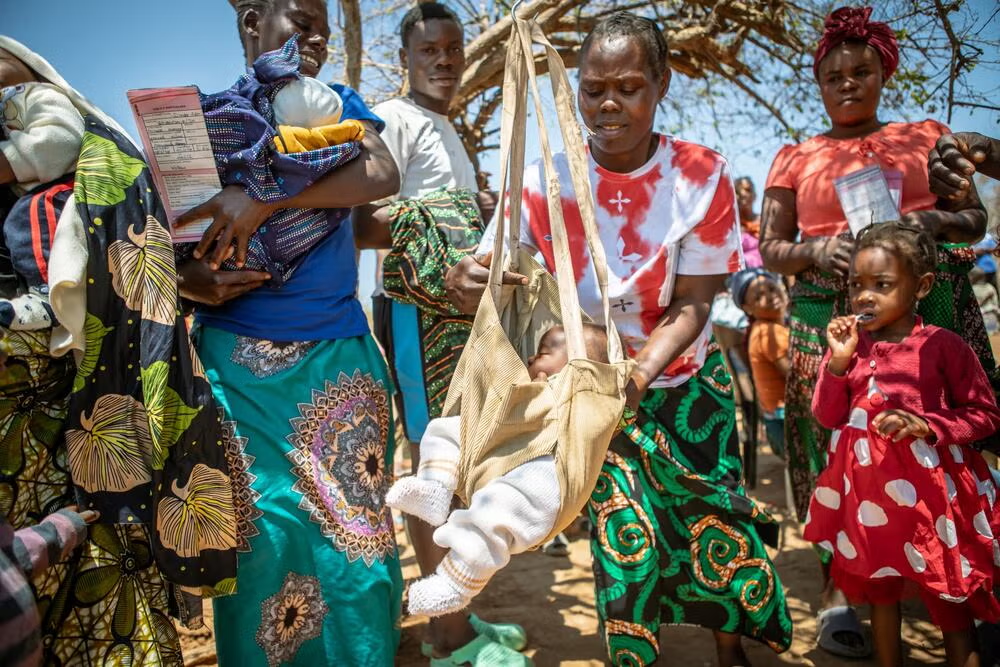
Derek recalls a moment that struck him deeply. “What hit me most was seeing mothers worrying about their babies, hoping for good news as they placed them on the scales to be weighed.”
UNFPA’s response brought mobile health clinics to the hardest-hit areas, offering medical checkups and cash assistance. To Derek’s surprise, men and women alike lined up eagerly—not just for food or aid, but for medical care. It was a powerful reminder that in times of crisis, health is as urgent a need as sustenance.
The drought’s impact extended well beyond Western Province. Of Zambia’s 21.1 million people, 9 million were affected by the drought, including 2.1 million women of reproductive age with 11.6% estimated to be pregnant. The challenge now is not just recovery but resilience—ensuring that communities are better prepared for the next crisis.
Bringing Care Closer
In Southern Province, Leonard Zulu moves through the community with ease, greeting elders and children alike. As UNFPA’s Youth Development Analyst and the coordinator of the work in Southern Province, he’s seen firsthand how critical it is to involve local leaders in any intervention. “It’s not just about providing aid,” he explains. “It’s about ensuring our response is effective, sustainable, and rooted in cultural understanding.”
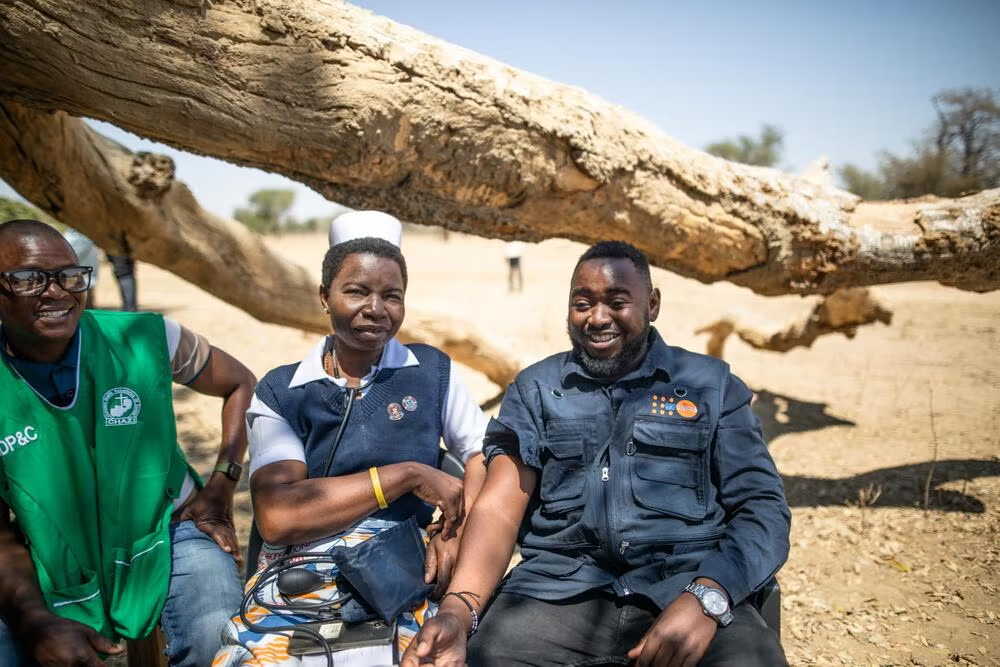
UNFPA’s impact has been far-reaching—over 240,000 people received services through mobile clinics staffed by nurses and other health professionals from the district health offices, while more than 54,000 young people found support through innovative approaches like dance classes, safe spaces, and creative workshops run by the Young Women’s Christian Association of Zambia. These weren’t just programs; they were lifelines, addressing both immediate health needs and the mental and emotional toll of the crisis.
Power cuts added another layer of hardship. In some areas, communities endured up to 20 hours of darkness daily. For women and girls, this compounded their vulnerability, making them even more susceptible to violence and exploitation.
“Before, women had to walk miles just to access care. Now, we’re bringing services to them...”
Just in Monze District, one of Leonard’s focus areas, UNFPA supports 40 health facilities. “Before, women had to walk miles just to access care. Now, we’re bringing services to them,” he says. The impact is clear: healthier children, empowered women, and communities that feel seen and supported.
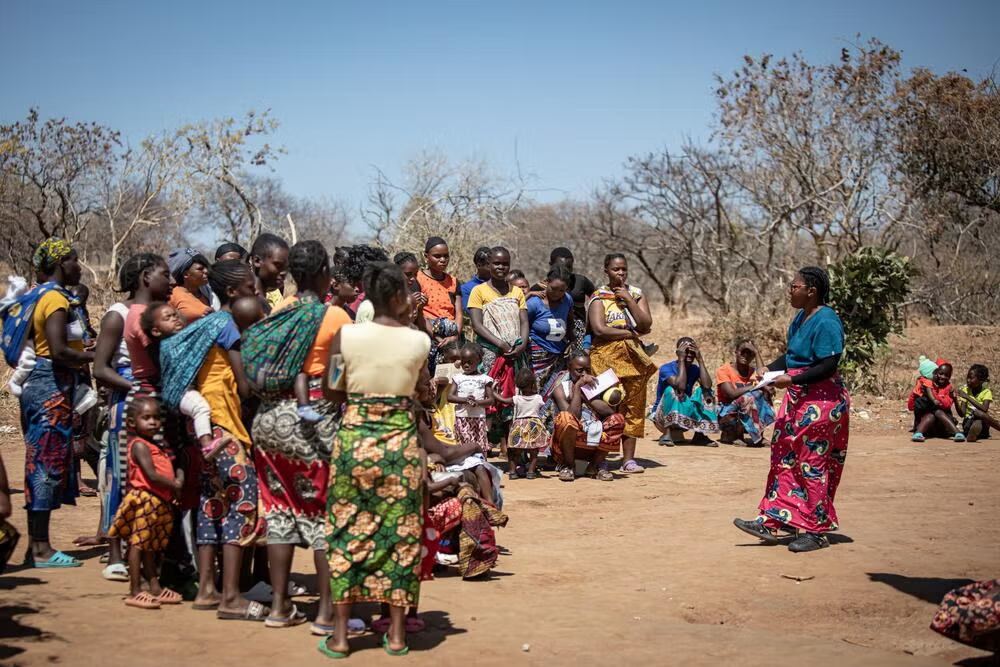
During the response efforts, more than 240,000 people attended temporary clinics set up by the Ministry of Health and UNFPA, receiving family planning services, antenatal and postnatal care, immunizations for babies, and classes on respect and consent tailored for men.
Derek and Leonard’s deep understanding of their communities has fueled culturally sensitive change, with solutions tailored to specific needs. Their unique insights and close ties to the regions they serve mean that responses are not only more agile but also directly address the realities of the people they support.
Building resilience beyond aid
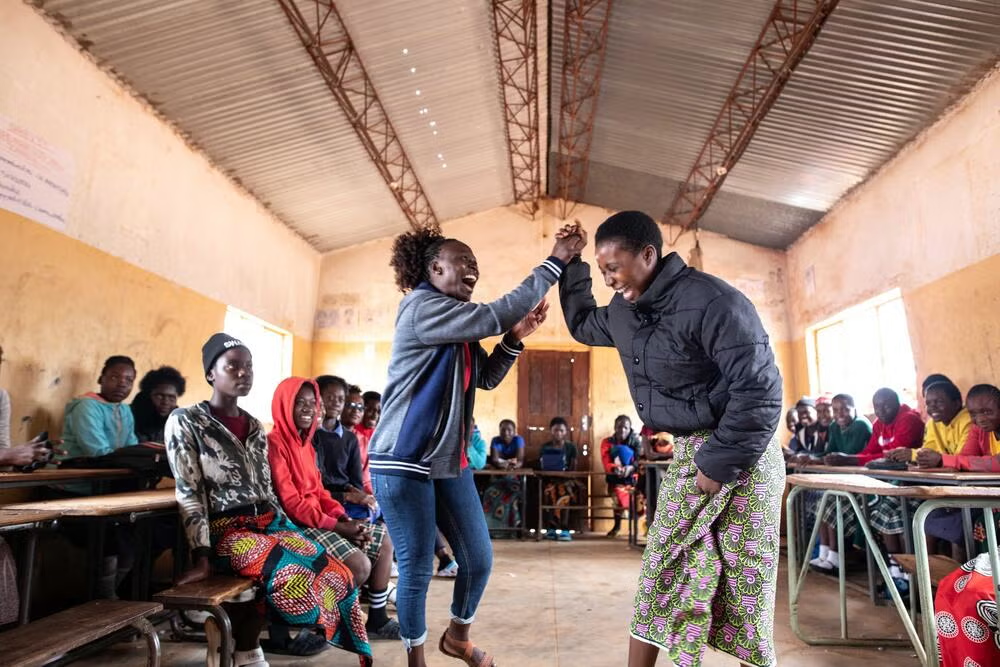
Traditional drought response often focuses on immediate food aid, but Zambia’s crisis called for something deeper. Food shortages led to deteriorating health, job losses in farming communities, and an overwhelming sense of uncertainty. For women and girls, these struggles were even more pronounced.
“The drought didn’t just take food off people’s plates; it took away their sense of security. Many of the women and girls we work with have spent years building safe spaces—and suddenly, everything felt uncertain again.”
Leonard reflects on what this meant for the communities he serves. “The drought didn’t just take food off people’s plates; it took away their sense of security. Many of the women and girls we work with have spent years building safe spaces—and suddenly, everything felt uncertain again.”
UNFPA’s response went beyond health and nutrition. Cooking classes, run in partnership with Ministry of Health nutritionists, taught families how to prepare nutritious meals with limited resources. Drama workshops, facilitated by the Young Women’s Christian Association, gave women and girls a voice—a platform to share their stories, process their emotions, and build solidarity.
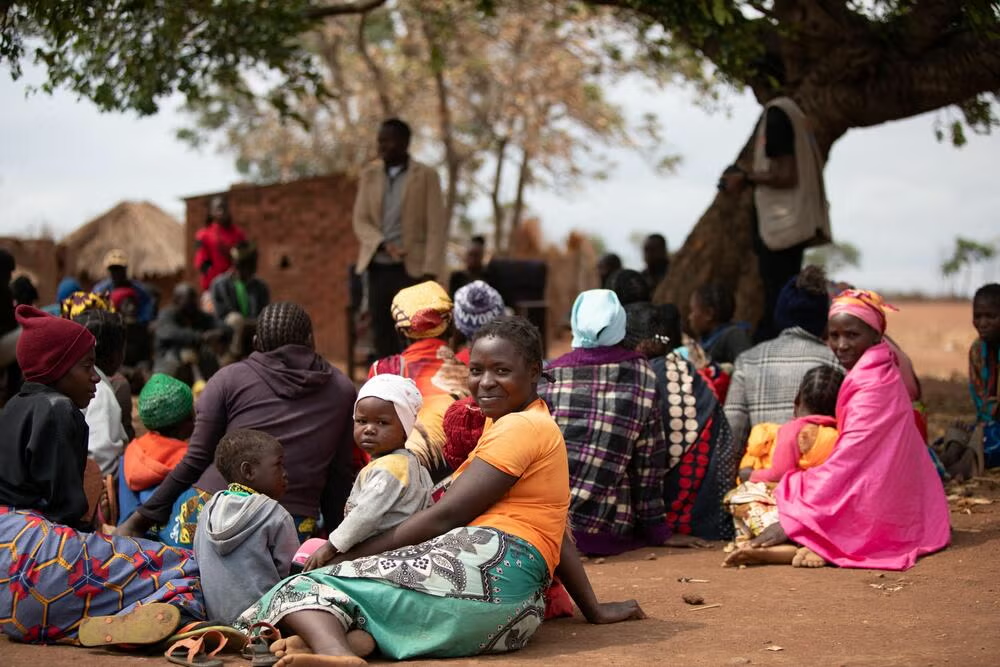
Through partnerships with Lifeline/Childline Zambia, thousands received counseling and support, not only for gender-based violence but also for grievances related to food and cash distributions, ensuring that aid was received fairly and without exploitation. Strategically, the mobile clinics and grievance desks were set up in conjunction with food and cash distribution points.
When climate change becomes personal
For Derek and Leonard, this work is more than just a job. It’s personal. As Zambians, they’ve witnessed firsthand the devastating consequences of climate change.
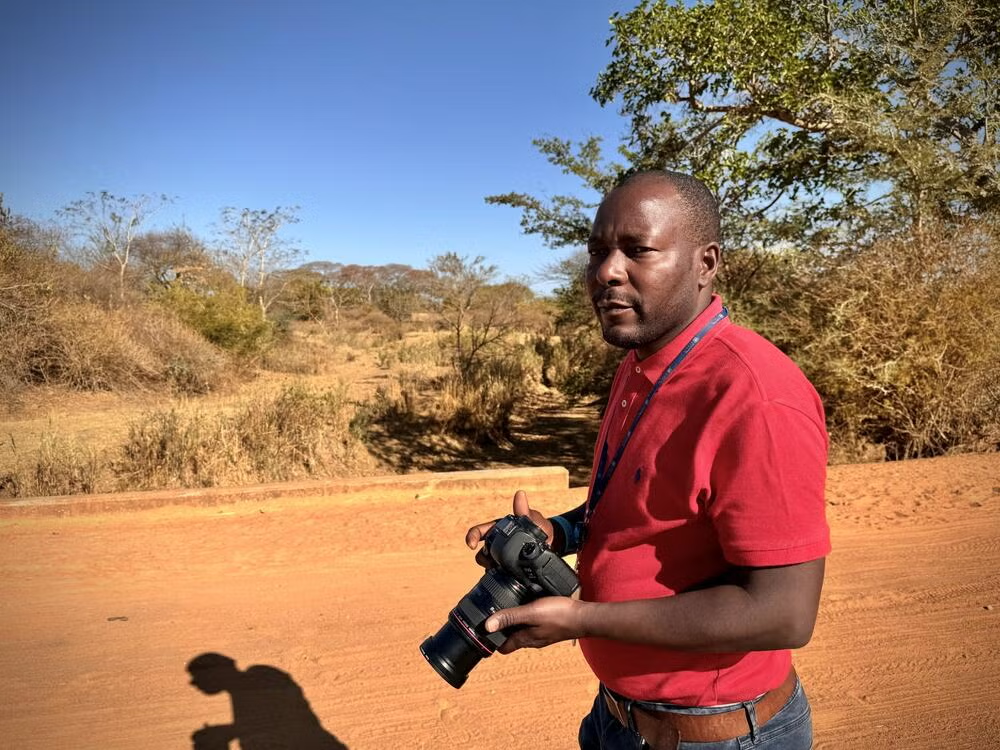
“The droughts are coming more often, and they’re getting worse,” Leonard says. “This isn’t just an abstract crisis—it’s our reality. It’s affecting our agriculture, our health, our way of life.”
As UNFPA looks ahead, the work continues—not just in responding to crises, but in strengthening communities and building their resolve to weather the next crisis. UNFPA relies on partnerships with community leaders, local organizations, and the UN system. It is through this collaboration that the response to Zambia’s drought was possible, and it is through this continued commitment that long-term change will take root.
Droughts happen, rains come and go, and in this evolving world racked by uncertainties, millions of women and girls, and thousands of communities in Zambia will face challenges. But with people like Derek and Leonard, and the strong sense of belonging of Zambian communities, the future is as clear as a bright day.

